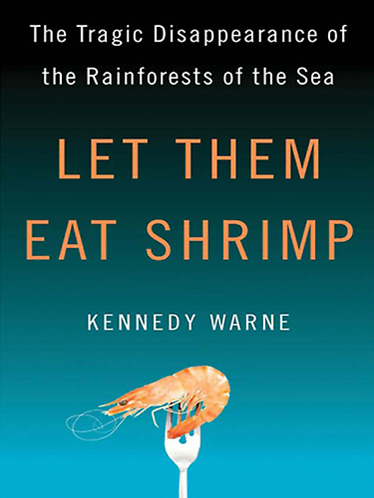
Let Them Eat Shrimp reports on the global impact of shrimp farming on subsistence communities and coastal ecosystems throughout the tropical world. It’s a fascinating and disturbing read.
I am particularly concerned because the birds I have been tracking for the last few years, willets, are heading to a vast mangrove ecosystem of Brazil that is under threat of conversion to shrimp farms. In fact, a law recently passed in Brazil has weakened environmental protections, making it easier for shrimp farming to expand into the willet’s winter stronghold.
Put simply, building a shrimp farm requires the destruction of mangroves. These tidal saltwater swamp forests are the dominant coastal ecosystem throughout the world’s tropics. They are incredibly productive, serving as the foundation of marine ecosystems. They provide a subsistence living to millions of people and protect coastal communities from the impacts of storms and tsunamis.
When shrimp farms are constructed, the myriad services mangroves provide are reduced to one: making shrimp. The farms displace people living subsistence lifestyles and displace the many birds, fish, crabs, and shellfish that those people depend upon for their living.
If you consult your Monterey Bay Seafood Wallet Card, it makes the unambiguous conclusion that you should avoid farmed shrimp because of its devastating effects on people and the ecosystems they depend upon.
Around the world, the people who depend upon mangroves are speaking up for their rights. For example, Let Them Eat Shrimp highlights the struggle of the people of coastal Ecuador. Ecuador’s mangroves have been almost totally destroyed by shrimp farming. But the coastal people are fighting fiercely for what is left. They have a slogan: “El manglar es nuestra casa. Protegelo y nos alimentara.” — “The mangrove is our home, protect it and it will feed us.“
It occurs to me that those willets and all the other creatures of the mangrove would say the very same thing. The difference between those mangrove creatures and the people is that the people have a voice.
We should be thankful that there are subsistence communities around the world that have a stake in the continued existence of mangrove ecosystems because they can be invaluable allies in conservation.
Those of us far removed from life in the mangroves can support them in a simple but powerful way. Do not eat that shrimp.